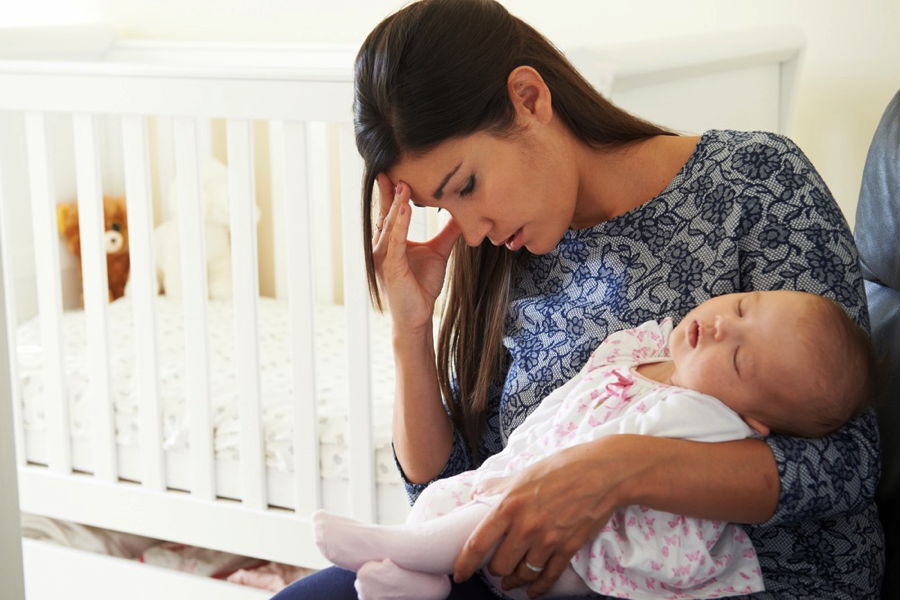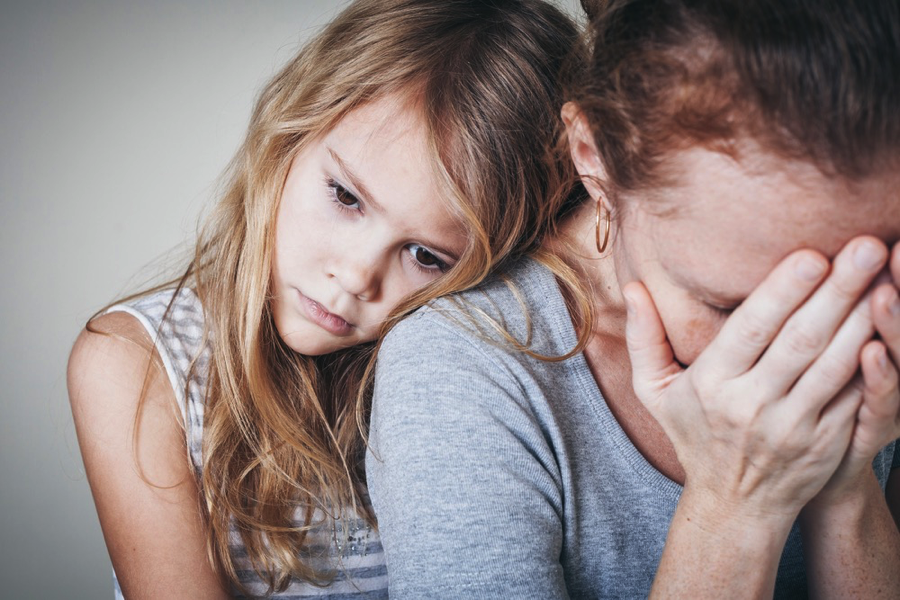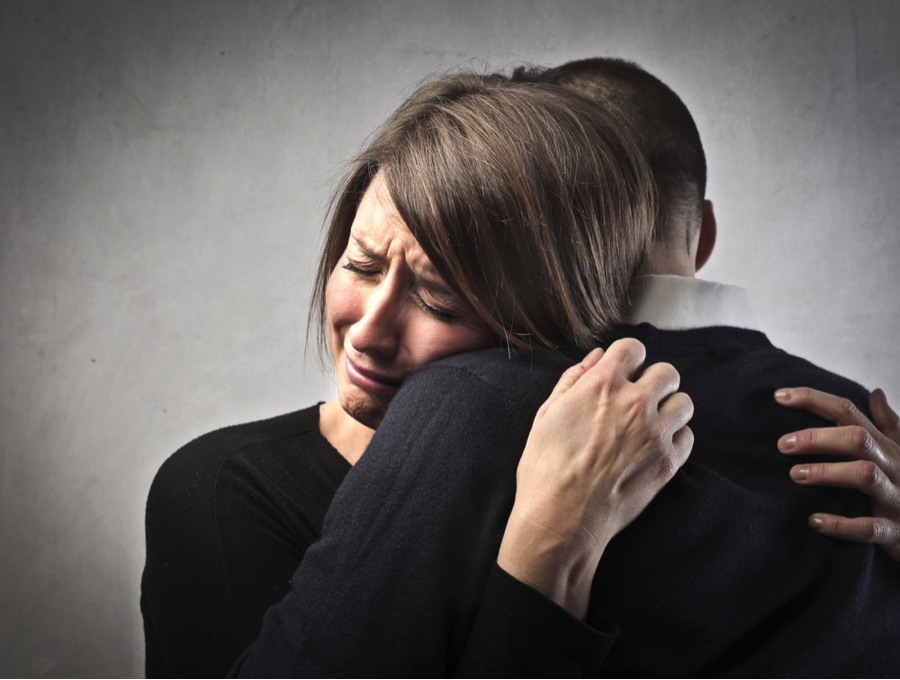Postpartum Depression: What is it? Do I Have It? How Can I Recover?


My doctoral dissertation researched pregnancy-related issues. That, coupled with over twenty-five years of being in private practice, and working with hundreds of women suffering from various degrees of postpartum depression, tells you a little bit about why this particular subject really hits home for me.
Referred by family, friends, OB-GYNs, pediatricians, or their primary care physicians, many new and repeat moms have come to me for help with overwhelming sadness, feeling worthless, and feeling they have little to no energy. Sometimes they have become emotionless. They often feel isolated and alone, even when loved ones are around them.
This is not exactly the image one normally thinks of when they picture a new mother. However, it is more common than you might think.
The Center for Disease Control reports that 11% – 20% of women who give birth each year suffer from postpartum depression (PPD). Well, that sounds like a pretty small number, right? Not really. If we look deeper, out of the 4 MILLION births each year in the United States, 15% would come to 600,000 women. And these are only the ones who have sought help. We really don’t know how many more women are impacted by this, but I think it is safe to assume that it is higher than we currently know.
After having a baby, women can report experiencing things like:
- anxiety
- irritability
- feeling overwhelmed
- unable to concentrate as they normally do
- having trouble sleeping.
Well, of course, they would, right?
I mean, having an infant, no matter if it’s your first or your fourth, is TOUGH work. So many things to think about, worry about, to do, to remember… motherhood (or fatherhood, for that matter) is not for the weary. Add in a difficult pregnancy, prolonged or complicated labor and delivery, or the stress around caring for your other children, and it’s no wonder these feelings appear! And to that point, I would like to say the following:
The “Baby Blues”
The “baby blues,” as they are sometimes called, appear in the timeframe soon after you give birth when you’re just not all smiley like the women in the movies are. The CDC and Mayo Clinic report that this period usually starts a few days after birth and can last up to two weeks.
There is a scientific, medical reason for this to happen. After giving birth, the levels of estrogen and progesterone that were coursing through your veins for the last 8-9 months suddenly drop off. Then a slew of other ones start flowing. This sudden switch is a lot for your body to absorb, and the effects of this are seen in your mood and emotional well-being.
The “baby blues” are temporary and usually do subside relatively quickly. If the feelings intensify, then it could be postpartum depression (PPD).
Postpartum Depression
What separates the “baby blues” from actual postpartum depression is the severity and duration of your symptoms; how bad are you feeling and how long have you been feeling this way? We also look at when your symptoms started. Women reporting postpartum depression find their symptoms start within the first few weeks of giving birth. This leads you to believe you’re just having the “baby blues,” and well-meaning friends and family may even tell you that. However, symptoms may not appear until as much as 6 months after giving birth.
Here are some very common things that women report with PPD:
- Overwhelming fatigue or loss of energy
- Feeling very down or severe mood swings
- Excessive crying
- Difficulty bonding with your baby
- Withdrawing from family and friends
- Loss of appetite or eating much more than usual
- Inability to sleep (insomnia) or sleeping too much
- Intense irritability and anger
- Fear that you’re not a good mother
- Feelings of worthlessness, shame, guilt or inadequacy
- Reduced interest and pleasure in activities you used to enjoy
- Having a hard time thinking clearly, concentrating or making decisions
- Severe anxiety and panic attacks
- Thoughts of harming yourself or your baby
- Recurrent thoughts of death or suicide
As you can see, these things are much more intense than what women experience with the “baby blues”.
The other key difference is that these symptoms go beyond a bad case of the blahs. A woman’s ability to care for herself or child is affected and she could be having thoughts of harming herself or the baby.
Sometimes, though, these feeling stick around and this is when they start to present a challenge.
How long does PPD last?
How long PPD lasts is more challenging to predict. Every person is unique and every experience is different. The Mayo Clinic reports that it can resolve within 6 months with appropriate treatment. Factors that can influence someone’s recovery include things like, how soon do they seek help, are the sticking to their treatment plan, and how severe their symptoms are. Stopping therapy too soon can lead to a relapse!
Often times, the feeling of shame is so profound, it keeps women from seeking help. The conventional wisdom is that one has a baby and life is grand!
Adjusting to the new normal
You’ve just welcomed a new life into the world! It’s one you’ve probably created with a loving partner; people have gushed, congratulated, coo’d, oh-my-goodness’d all over the place. You’ve come home to the perfect nursery, ready to be a mothering champion.
And then reality sets in.
The all-night feedings, sore breasts, sore muscles, fatigue like no other… all things you “knew” about, but the reality of which is stunning, and a little scary! It’s not going AT ALL like they said it would in the books!
Then the sad and anxious feelings you’re having – wondering what to do when you can sleep, the constantly wondering if you’re doing it “right,” and having that feeling in the pit of your stomach you’re not. And the worst part, it doesn’t seem to go away. Ever. All of a sudden it’s baby’s 2-month birthday and you are no more joyous than you were on day 7. You can’t seem to see the light at the end of the tunnel! And what’s worse, the tunnel seems to be getting darker, and longer.
Good News
Whether the baby blues or postpartum depression, many women have told me that they’ve felt stigmatized in the face of PPD. They really believe that they are “going crazy”. In almost 100% of the instances, I have found this assumption is absolutely not true.
Actually, I have found the exact opposite to be true. It is rare that a woman with PPD has anything close to being “crazy” or psychotic. In all likelihood, this is not “craziness” at all. It just feels that way because the thoughts and the feelings you are having are so powerful and unfamiliar. It can really be overwhelming.
The good news is this – the vast majority of wonderful women who have come to me for help with this condition are probably very much like you: they are simply very normal people, who are having very normal but painful reactions, as a result of postpartum depression.
There is help for you.
Someone once said that “pain shared is pain halved”. My own life experiences and that of my family, clients, friends, and colleagues is a testimony to this. We do so much better when we are open to and ask for help.
If you’re reading this and experiencing these symptoms, please take heart. I’m here to let you know that there is help available.
You can feel better…much better.
Typical treatment for postpartum depression includes psychotherapy (talk therapy or counseling), medication, or both.
Don’t wait to ask for help. Waiting prolongs your suffering.
Seek help now.
You might be thinking that you can simply try to “wait it out”. My experience, and more importantly the experience of almost every woman I have known who suffered from PPD, is that this is not the best way to go for many reasons.
In addition to impacting you, untreated PPD can also have a profound impact on your loved ones.
If your depression is left untreated, the lack of energy, mood swings and lack of ability to focus can easily affect your ability to parent – either your infant or your other children.
The subsequent feelings of guilt associated with not being able to care for your children only make the entire cycle worse.
WomensHealth.gov shares that research shows untreated PPD in mothers can affect their babies with:
- Delays in language development
- Problems with mother-child bonding
- Behavior problems
- Increased crying
But where do you go now? Who do you call?
You can start with your partner. Have an honest talk about how you’ve been feeling, including any thoughts you may be having of harming yourself or the baby. Let them support you.
You can also reach out to a trusted friend and confide in them. Perhaps they can help in caring for the baby, or they can come with you to an appointment. Maybe they’ve gone through the same thing. Just knowing you’re not alone, in and of itself, can help to lift the burden.
Don’t forget about your OBGYN. You may even find that they are asking you about this at your follow-up appointment after you give birth. Your doctor may even be able to prescribe you some medication if they think it’s appropriate.
Of course, a counselor or psychotherapist is a great option too. New moms have told me that just being able to talk about this experience has been extremely helpful.
A third person, trained and experienced in helping women with postpartum depression, can ease your mind and help you differentiate if medication is something that seems appropriate for you. He or she can then refer to you to the proper medical doctor for that intervention.
Here are some helpful tips to think about when considering if it’s PPD:
- Your baby blues don’t go away after 2 weeks
- Symptoms of depression get more and more intense
- Symptoms of depression begin any time after delivery, even many months later
- It is hard for you to perform tasks at work or at home
- You cannot care for yourself or your baby
- You have thoughts of harming yourself or your baby
IMPORTANT NOTE: If your feelings are having serious thoughts of harming yourself or your child, you can also call 911, ask someone to call for you, or ask them to take you to your nearest emergency room.
I strongly believe that you deserve to be happy and enjoy your new baby!
And, you CAN!
First things to do
Tell your partner, spouse, or other loved one about how you’re feeling and let them help you care for your child – and for you.
Then call your doctor or another healthcare professional to discuss your options.
With proper treatment which may include counseling, medication, or both, postpartum depression is completely treatable! Remember, each person is different. Each life is different. There is no standard you need to uphold as a new parent or mother. You only need to be healthy and happy. When you are, those around you will be as well – including your new baby! There is strength in reaching out for help.
If you’re reading this and any of this resonates with what you are experiencing, please give me a call. It’s ok, you absolutely don’t have to suffer alone. I am available in an environment where you can feel safe. Other moms who have felt just the way you are feeling, have called and ultimately told me that they were so happy they did.

















Having A Baby - Part 4: 12 Tips To Enhance Your Relationship After Your Baby Is Born
[…] swings that move from elation, deep love and baby bliss to anxiety, frustration, and even the “baby blues” and sometimes full on post-partum depression (these can happen as fast as a rollercoaster — in minutes and throughout the day…hold […]